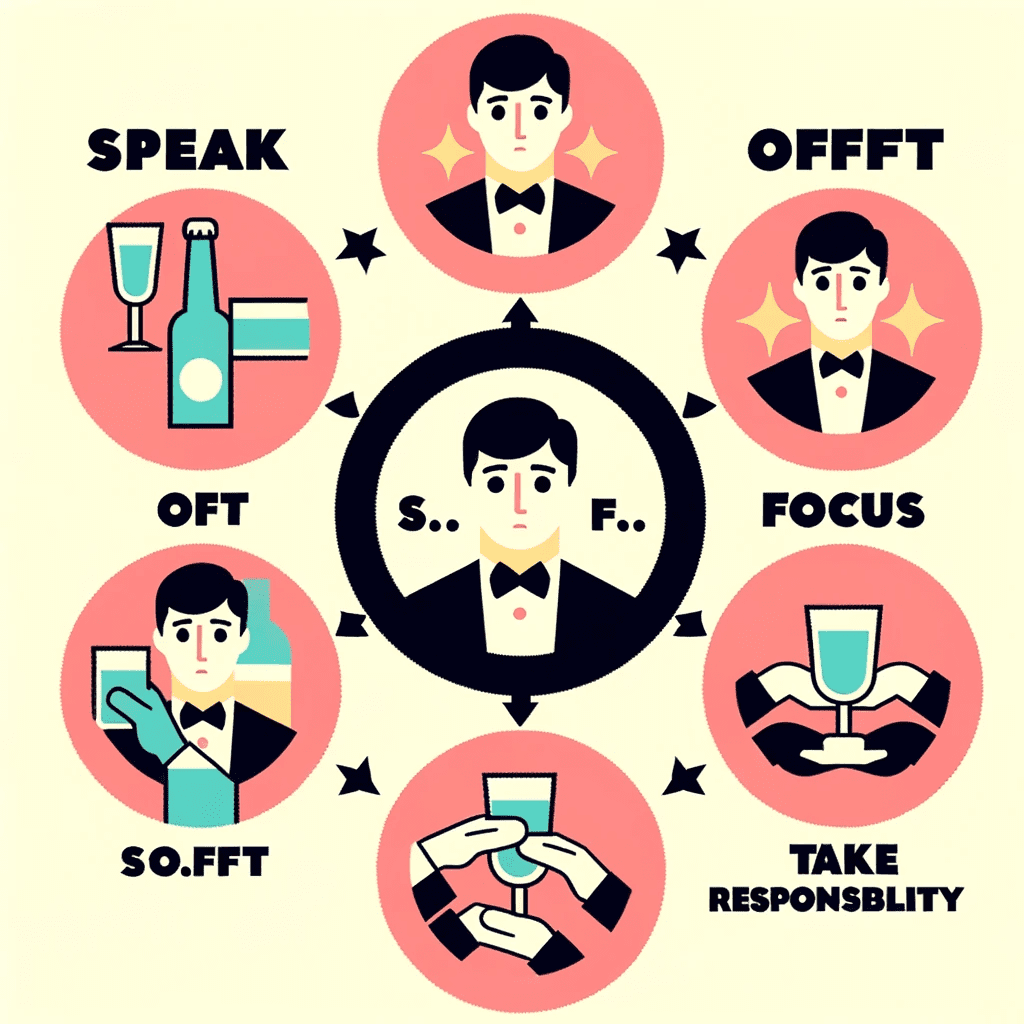The bar industry thrives on providing memorable experiences. However, it's essential to ensure these memories are positive. One critical aspect of this is handling over-intoxicated patrons efficiently. Here's a training program to manage such situations effectively.

Training Modules:
1. Understanding the Impact of Alcohol
Effects of alcohol on the body and behavior:
- Alcohol affects the central nervous system, impairing judgment, coordination, and reaction times.
- Prolonged alcohol use can lead to addiction, liver diseases, and other health complications.
- Understanding the different stages of intoxication: euphoria, excitement, confusion, and stupor.
Recognizing signs of intoxication:
- Physical signs include flushed skin, bloodshot eyes, unsteady walking, and slowed reactions.
- Behavioral signs might encompass loud speech, inappropriate behavior, or a decrease in inhibitions.
Blood Alcohol Concentration (BAC) basics:
- BAC measures the amount of alcohol in the bloodstream.
- It's used legally to define intoxication, often at a level of 0.08%.
Reference: NIAAA's Alcohol's Effects on the Body
2. Legal Implications and Responsibilities
Local and state regulations:
- Familiarize with local laws about serving alcohol, age restrictions, and serving hours.
- Know the penalties associated with violating these laws.
Liabilities of over-serving:
- Legal consequences can range from fines to imprisonment.
- The establishment can face lawsuits, especially if an intoxicated individual causes harm.
Understanding ABC's role:
- ABC ensures compliance with alcohol-related laws.
- They may conduct surprise checks and enforce penalties for violations.
Reference: Dram Shop Laws by State
3. Effective Communication Skills
Approaching without confrontation:
- Use open body language, maintain eye contact, and use a soft tone.
- Address the patron by their name to establish a connection.
Using positive language:
- Instead of "You're too drunk," say "Let me get you some water."
Active listening:
- This ensures the patron feels heard and understood, reducing the chance of aggression.
Role-playing exercises:
- Conduct mock scenarios to help staff practice handling various situations.
4. Intervention Techniques
The "S.O.F.T." method:
- Speak calmly, Offer alternatives, Focus on safety, Take responsibility.
Non-verbal cues:
- Avoid aggressive or confrontational body language.
- Use gestures that signal openness and understanding.
When to involve others:
- If a patron becomes increasingly aggressive, involve security or colleagues.
5. Safety Protocols
Handling aggression:
- Maintain distance, avoid direct confrontation, and seek assistance if needed.
When to contact law enforcement:
- If a patron becomes violent or poses a threat to themselves or others.
Safe transportation options:
- Always suggest cabs, rideshares, or designated drivers. Never let an intoxicated person drive.
6. Post-Incident Procedures
Documentation:
- Maintain a logbook to record incidents, ensuring it's detailed with times, involved parties, and actions taken.
Staff debriefing:
- Discuss incidents to identify areas of improvement and reinforce proper procedures.
Reviewing policies:
- Regularly review and refine policies to adapt to changing circumstances.
7. Ongoing Training and Support
Regular refreshers:
- Update training at least annually, or whenever there are changes in the law or establishment's policies.
Expert workshops:
- Invite professionals to share insights on mental health awareness, de-escalation techniques, and more.
Resources for staff well-being:
- Consider counseling or stress-relief techniques to support staff.
Handling over-intoxicated patrons is a delicate task requiring a blend of tact, understanding, and firmness. Through this training, bar staff will be equipped with the knowledge and skills to manage such situations, ensuring the safety and reputation of the establishment.
